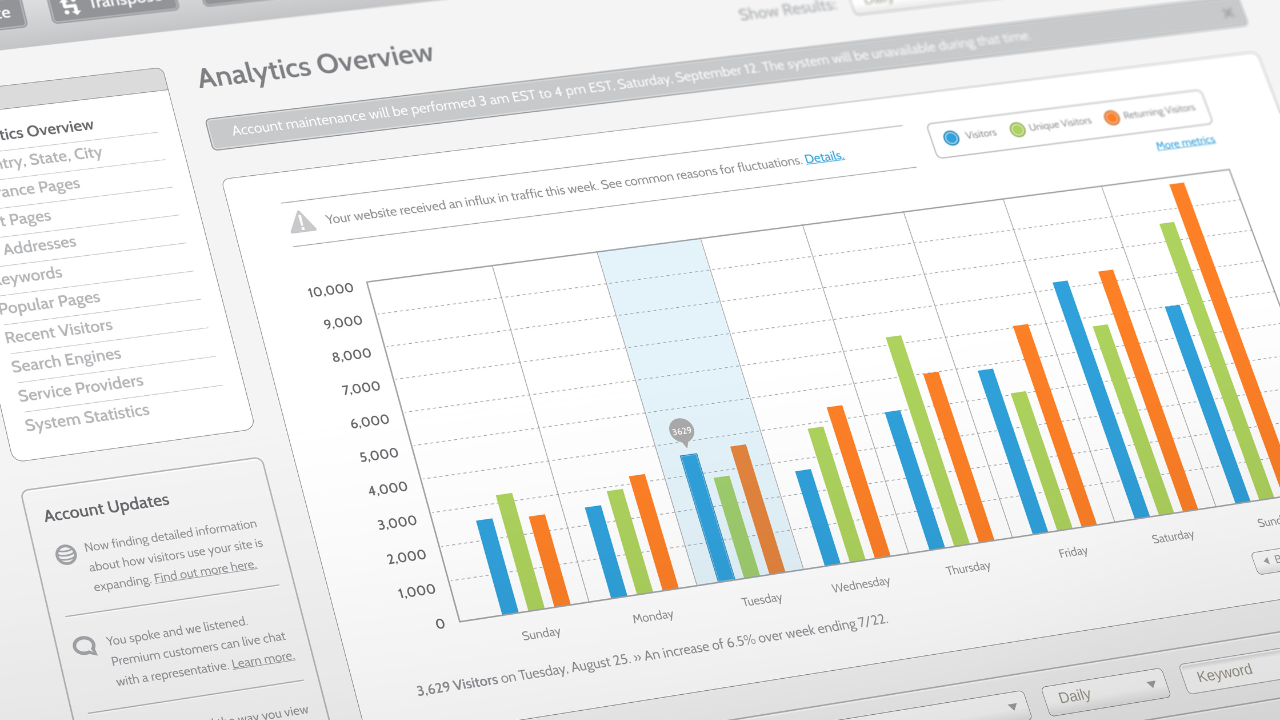Quick Answer
If you want to know how to do SEO for small business, start by understanding your audience, optimising your web pages with relevant keywords, improving website performance, and focusing on local SEO through Google Business Profile and local directories. Search engine optimization (SEO) is the process of improving your website to appear higher in Google’s search results.
Use tools like Google Search Console, Google Analytics, and AI-powered platforms to monitor search results, fix issues, and attract organic traffic from search engines with the goal of ranking prominently in Google’s search results.
What Is SEO and Why Small Businesses Need It
Search engine optimisation (SEO) helps small businesses appear in search engine results when people search online for products or services. SEO also helps small businesses show up in online searches when people are looking for a product or service. It’s about creating website content that matches what your target audience is looking for.
Unlike paid advertising, SEO focuses on organic search and long-term visibility. Many businesses underestimate the importance of early SEO implementation. It helps build trust with potential customers, increases traffic, and ensures your small business is visible in your community.
At Piri Piri Marketing Hub, we specialise in helping local businesses use SEO to create a strong online presence, build brand authority, and connect with real people. Developing effective SEO strategies is essential for small businesses to maximize their online visibility and growth.
Step 1: Research the Right Keywords for Your Business
Keyword research is the foundation of any small business SEO strategy.
Use SEO tools such as Google Search Console and Google Analytics to find relevant keywords that reflect what your target market is searching for. Make sure to choose keywords that are directly related to your specific product or service, as this helps attract visitors who are interested in what you offer. Focus on long tail keywords like:
- “affordable accountants in Melbourne”
- “best web design for small businesses in Sydney”
These phrases match local intent and drive organic traffic from prospective customers who are ready to buy.
Avoid keyword stuffing and instead include keywords naturally across your page titles, meta descriptions, and web content.
Step 2: Optimise On-Page SEO
On-page SEO helps search engines understand what your web page is about.
To optimise effectively:
- Write unique page titles and meta tags for every page.
- Add descriptive alt text to images.
- Use internal links to connect relevant pages.
- Remove duplicate content or same content across multiple URLs.
- Ensure your site is mobile-friendly for mobile devices.
- Increase site speed for a better user experience.
These small updates help your website climb higher in Google’s search results and improve organic search results. By focusing on these on-page SEO practices, you can enhance your website’s ranking in search engines.
Step 3: Strengthen Your Local SEO
For small businesses, local SEO can make or break visibility. Optimising for local search ensures your business shows up when people nearby are looking for what you offer. Targeting local customers is essential for attracting those in your community who are most likely to engage with your business.
Here’s how to do it:
- Create or update your Google Business Profile.
- Add your business name, address, and phone number to local directories.
- Encourage customers to leave online reviews.
- Get featured in local blogs or sponsor community events.
- Use Google Maps to appear in “near me” searches.
A strong local SEO presence helps connect your products or services with nearby local customers.
Step 4: Build a Small Business SEO Strategy with AI
AI is changing how small businesses do SEO. AI SEO tools can help you plan, write, and optimise faster.
They analyse search queries, identify relevant keywords, and even suggest how to structure seo content for better ranking web pages.
AI platforms like SurferSEO or Jasper can also:
- Suggest improvements to meta descriptions
- Identify duplicate content
- Analyse website performance
- Recommend internal links for stronger connections
By combining human creativity and AI SEO techniques, you can maintain an authentic brand voice while achieving data-backed results.
Step 5: Create SEO Content That Attracts and Converts
Quality seo content is what makes your brand memorable. Each page should have a purpose — to inform, educate, or convert.
Tips for content creation:
- Answer common search queries your audience asks.
- Include local intent where relevant.
- Use relevant keywords naturally throughout your web content.
- Avoid keyword stuffing or filler phrases.
- Add descriptive alt text to images.
- Keep paragraphs short for mobile optimisation.
Here are a few examples of content types small businesses can create: how-to videos, FAQs, or customer stories.
Example: A Brisbane hair salon could publish a blog on “Top 5 Hairstyles for 2025” with photos optimised for mobile devices, earning traffic from organic search and voice search. Learn more about digital marketing trends Australian businesses can’t ignore in 2025.
Step 6: Build Links with Authority
Backlinks from other websites increase your authority in the eyes of search engines. To build trust:
- Contribute articles to local blogs.
- Collaborate with local businesses for mentions.
- Submit your business to credible local directories.
- Earn links from external websites relevant to your field.
These SEO efforts help boost your website’s ranking and establish credibility among prospective customers.
Step 7: Track Your SEO Efforts
You can’t improve what you don’t measure. Use Google Analytics and Google Search Console to:
- Check organic traffic
- Analyse search queries and click-through rates
- Review performance of meta descriptions and page titles
- Identify common SEO mistakes like broken links or duplicate pages
Tracking results helps you refine your seo strategy and understand which keywords and pages perform best.
Step 8: Improve Website Performance
A slow or poorly structured website can harm your SEO success. Audit your site speed regularly and fix issues that affect mobile friendliness.
Optimise for mobile devices, compress images, and test your web content layout on phones and tablets. A fast site enhances the user experience and supports higher rankings in search engine results.
Step 9: Build Trust Through Local and Community Engagement
Google rewards genuine businesses that are part of real communities. As a small business owner, you can:
- Support or sponsor community events
- Partner with local businesses
- Ask for testimonials and online reviews
- Publish guest posts on local blogs
These actions show both Google and your customers that your business is authentic, trustworthy, and worth supporting.
Technical SEO Essentials for Small Businesses
Technical SEO is the backbone of any successful small business SEO strategy. It ensures that search engines like Google can easily crawl, index, and understand your web pages, which is essential for achieving higher search engine rankings. For small businesses, focusing on technical SEO means optimizing your website’s site speed, ensuring mobile friendliness, and using accurate meta tags across all pages.
A fast-loading website not only improves user experience but also signals to search engines that your site is reliable and worth ranking in search engine results. Mobile friendliness is equally important, as more customers are searching for products or services on their phones. Make sure your website adapts smoothly to all devices and screen sizes.
Google Search Console
Google Search Console is an invaluable tool for monitoring your website performance and identifying technical issues that could be holding back your SEO efforts. Use the search console to check for crawl errors, broken links, and problems with meta tags. By prioritizing technical SEO, small businesses can boost their online visibility, attract more organic traffic, and increase their chances of appearing at the top of Google search results.
SEO Tools and Resources for Small Business Owners
Small business owners have access to a wide range of SEO tools and resources that can make a big difference in their search engine rankings. Google Analytics is essential for tracking website traffic, user engagement, and conversion rates, helping you understand what’s working and where to improve. Google Search Console provides valuable insights into your website’s performance in Google search, including impressions, clicks, and keyword rankings.
Keyword Research Tools
For keyword research, tools like Ahrefs and SEMrush can help you discover the best keywords for your business and analyze your competitors. Technical SEO audit tools such as Screaming Frog or Moz can identify issues that may be affecting your site’s health and visibility.
Staying up-to-date with the latest SEO trends is also important. Follow reputable SEO blogs and participate in online forums to learn new strategies and best practices. By leveraging these SEO tools and resources, small businesses can develop a data-driven SEO strategy that drives more traffic, generates leads, and increases sales.
How Online Reviews Impact Your SEO
Online reviews are a powerful factor in small business SEO, especially when it comes to local SEO and search results. Reviews from local directories like Google Business Profile, Yelp, and TripAdvisor often appear prominently in Google’s search results, influencing the decisions of potential customers.
Encouraging your customers to leave positive online reviews can boost your business’s credibility and improve your rankings in local search. High-quality reviews signal to search engines that your business is trustworthy and relevant, which can drive more organic traffic to your website. Responding to both positive and negative reviews shows that you value customer feedback and are committed to excellent service.
By making online reviews a priority, small businesses can enhance their local SEO, increase their online visibility, and attract more potential customers from organic search.
Internal Linking Strategies for Better Rankings
A smart internal linking strategy is essential for small business SEO. Internal links help search engines understand the structure and hierarchy of your website, making it easier to crawl and index your relevant pages. For small businesses, this means connecting related blog posts, product pages, and service pages with descriptive, keyword-rich anchor text.
Instead of linking only to your homepage, focus on linking to specific, relevant pages that provide value to your visitors. This not only improves navigation for users but also distributes link equity throughout your site, helping more pages rank higher in search engine results.
By implementing effective internal links, small businesses can boost their website’s authority, improve crawlability, and drive more organic traffic from search engines.
Conversion Rate Optimisation and SEO: Turning Traffic into Customers
Driving traffic to your website is only half the battle—turning that traffic into paying customers is where conversion rate optimisation (CRO) comes in. CRO and SEO go hand in hand for small businesses. By optimizing elements like page titles, meta descriptions, and calls-to-action, you can create a seamless user experience that encourages visitors to take action.
Conduct A/B testing to see which headlines, layouts, or calls-to-action perform best. Analyze user behavior to identify where visitors drop off and make improvements to keep them engaged. Optimizing your website’s design and content not only helps with search engine rankings but also increases the likelihood that visitors will become leads or customers.
By combining CRO with your small business SEO strategy, you can maximize the value of your organic traffic, generate more leads, and grow your sales—all from the same visitors you’re already attracting through search engines.
Step 10: Work with a Full-Service SEO Agency
Managing SEO can be overwhelming. A full service agency like Piri Piri Marketing Hub can help you:
- Conduct keyword research and competitive analysis
- Develop a customised small business SEO strategy
- Optimise your meta tags, page titles, and website content
- Audit site speed and mobile optimisation
- Build backlinks from credible external websites
- Track performance through Google Analytics
We focus on delivering good SEO results that are measurable, sustainable, and tailored to your business goals.
FAQs About Small Business SEO
What are the biggest SEO mistakes small businesses make?
Using duplicate content, ignoring local search, forgetting meta descriptions, and skipping mobile optimisation are among the biggest SEO mistakes.
How much does SEO cost for small businesses?
SEO cost varies depending on your goals and competition, but many small businesses can start effectively with a modest budget and grow as they see results.
Can AI really help with SEO?
Yes. AI SEO techniques can help identify trends, automate keyword research, and improve content performance — making it a powerful partner for small business owners.
How long does it take to see SEO results?
Typically, SEO efforts take three to six months to show consistent improvement in organic search and ranking web pages.
Final Thoughts
Learning how to do SEO for small business is about blending proven strategies with smart technology. Focus on local SEO, strong website content, and measurable performance.
At Piri Piri Marketing Hub, a digital marketing service provider, we use AI SEO tools, data-driven insights, and creative storytelling to help small businesses reach their target audience and boost organic traffic in meaningful ways.
If you’re ready to turn clicks into customers, visit Piri Piri Marketing Hub and discover how we can help you achieve SEO success through smart, sustainable optimisation.















